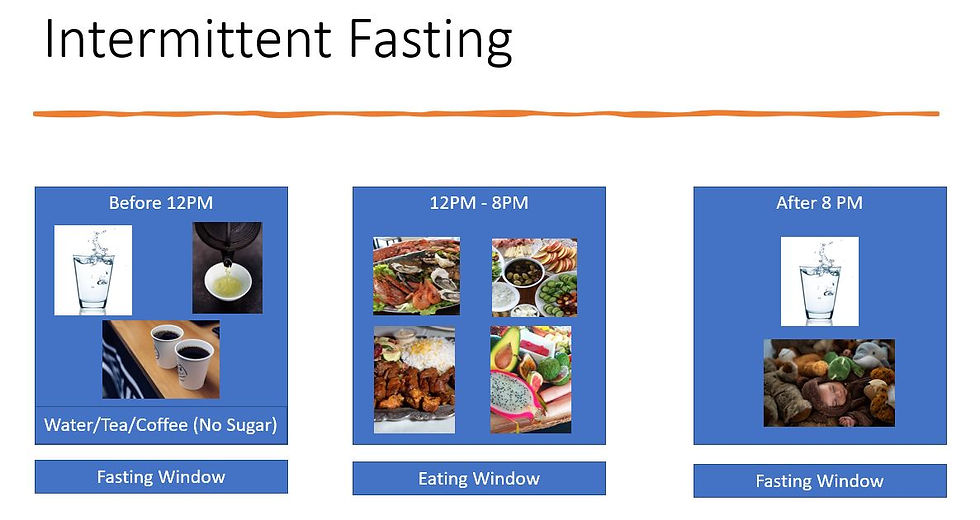Wellbeing: Intermittent fasting
- Mihir Parida
- Mar 26, 2023
- 2 min read
Updated: Apr 30, 2023
In my school days, we often visited our grandparents during the summer vacations. My grandfather used to follow a religious tradition that was very prevalent at that time in the eastern part of India. As part of the tradition, he used to eat two meals a day; one immediately before sunrise and one before sunset. He was fit for most of his life, never suffered any major illness, and passed away as part of a natural process.
Last year, as part of the well-being journey, I researched different diet plans. After researching a lot (Atkin, Vega, Ketogenic, Paleo, Low carb etc.), came my "Aha!" moment. I decided to start intermittent fasting, and I realized what my grandfather was doing all those years was a form of intermittent fasting.
Intermittent fasting (IF) is an eating pattern where food consumption is restricted to certain hours of the day. The focus is more on when you eat rather than what you eat. The most popular method, and where a lot of research is ongoing, is the 16/8 method. In this 16/8 method, one fasts for 16 hours and eats within an 8-hour window. Other types of fasting are 12 hours of fasting every day, fasting one day a week or on two non-consecutive days of the week, restricting your intake to 500–600 calories, etc.
I have been following the 16/8 method (the first meal of the day is at 12.00 Hrs. and the last meal is before 20.00 Hrs. The benefits have been immense. In addition to weight loss, I feel more energetic, and it seems my mind is more agile now.
For those looking for a new beginning, it is worth exploring intermittent fasting. Huberman, Satchin Panda, and David Sinclair are a few names who have done a lot of research on the subject.

Comments